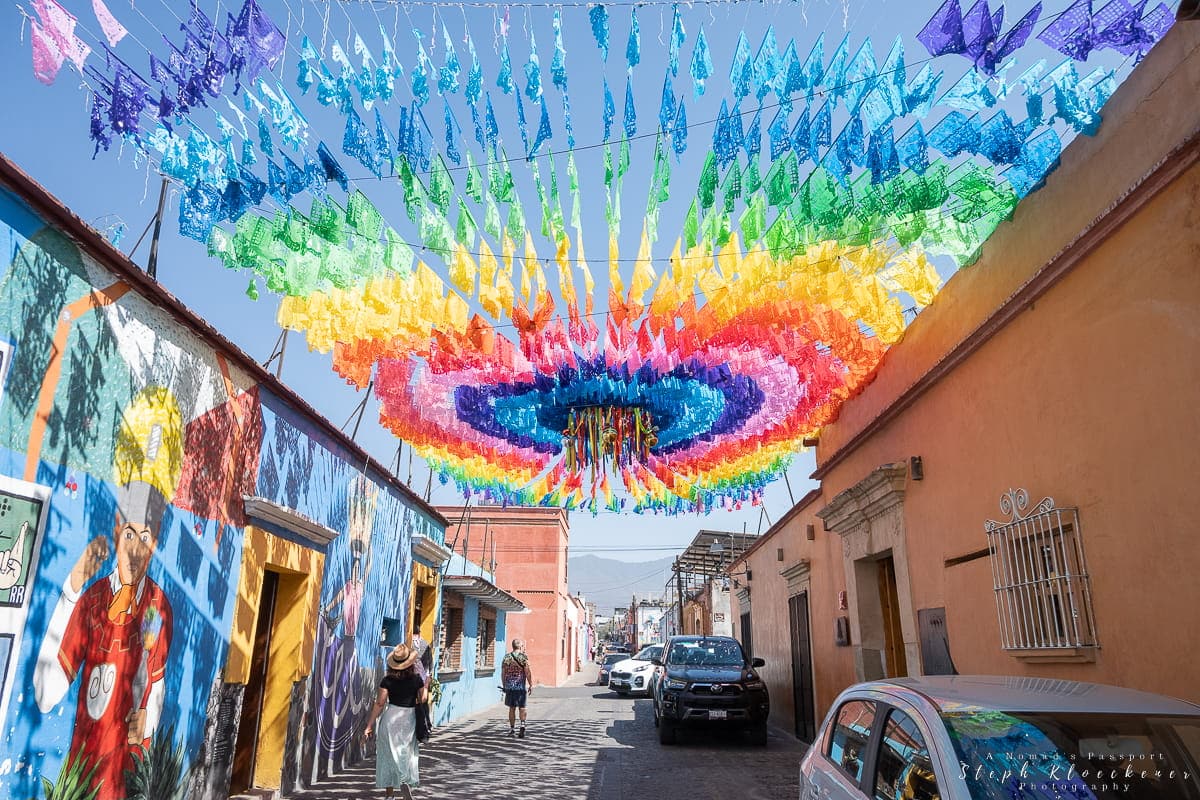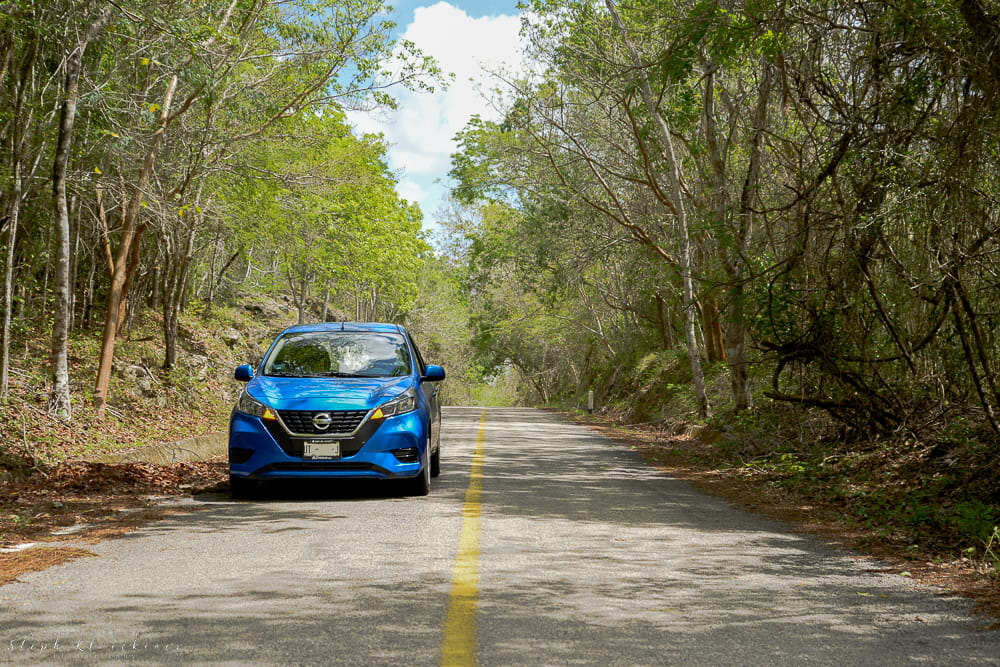
Mexico is an amazing and vibrant country that every traveler should visit at least once. It is a country with stunning beaches, flavorful food, vast biodiversity, colorful towns, and ruins of the Mesoamerican empires. And in addition to all that, the country has great cultural wealth.
You can visit bustling cities like Mexico City or Oaxaca de Juarez, or relax in beach towns like Sayulita and Puerto Escondido. Roam the streets of colonial towns like Valladolid, explore charming islands like Cozumel and Holbox, or enjoy amazing Mexican food – you will fall in love with Mexico regardless of what you do while in Mexico!
If you are heading to Mexico for the first time, a Yucatan Peninsula road trip is a great way to get a first impression of the country. Spend your days swimming in the cenotes near Tulum or the cenotes near Valladolid, before exploring impressive Mayan ruins like those of Ek Balam, Coba, or the ruins of Tulum. There are plenty of things to do in the Yucatan, so you are bound to have a full itinerary that can easily be adjusted based on your interests.
The country also has marvelous coral reefs, which make it a prime scuba diving destination. On the Yucatan Peninsula, scuba divers love diving in Cozumel as well as cenote diving. And if you want to see wonderous natural sights above the surface, you will love the pink Las Coloradas or the bioluminescent beaches north of Cancun.
My first trip to Mexico was six weeks long, and I would have loved to stay longer. I fell in love with the country and started planning my next trip there the second my plane made its way to the runway. After all, Mexico has a lot to offer, and I won’t stop until I have seen all the country’s highlights as well as many of its hidden gems.
Places to see in Mexico
TOWNS & ISLANDS
- PLAYA DEL CARMEN
- OAXACA DE JUAREZ
- COZUMEL
NATURAL SIGHTS
- CENOTE ANGELITA
- CENOTE CAR WASH
- HIERVE EL AGUA
Ruins
- BECAN & CALAKMUL RUINS
- MONTE ALBAN & MITLA
- CHICHEN ITZA
Things to know before you visit Mexico

Chichen Itza is just one of many stunning Mayan Ruins in Mexico
Language
The is no official language in Mexico, but Spanish is the language of the government and the first language of 90% of the population.
There are a total of 68 national languages, with 63 of these being indigenous languages.
While you will get by if you only speak English, if you visit tourist hotspots, knowing some Spanish is advised. If you venture off the beaten path and into Indigenous communities, being able to speak Spanish (or having access to a translation app) is essential.
Currency
The official currency is the Mexican peso (MXN). As of April 2025, 100 MXN equals 5.07 USD, 4.45 EUR, and 7.95 AUD.
Credit Cards & ATMs
Credit cards (MasterCard, Visa, and AMEX) are widely accepted at the big tourist destinations, but once you venture off the beaten track or even only a few kilometers into the jungle to visit cenotes, you need cash, as there is likely no reception that allows for credit card payments.
It is advised not to have too much cash on you, so leave the money you do not need for the day in a secure location at your accommodation.
ATMs can often also be found in smaller towns, but there might be no bank. Check the location of bank branches in advance if you only want to withdraw money there to avoid getting scammed at ATMs. If your cards tend to have issues while withdrawing money in Mexico, I recommend using Citibanamex ATMs.
When withdrawing money, using the conversion rate of your credit card is usually the best option. Also, read what the ATM says to avoid accidental additional charges due to donations or other things.
Plugs
The plugs are type A and type B. The standard voltage is 127V, and the frequency is 60Hz. If you live in the USA, you do not need a travel adapter or converter.
Visa
If you are a citizen of the USA, a Schengen country, the UK, Canada, or Japan, you do not need a visa as long as your passport is valid for 6 months and you plan to stay no longer than 180 days.
Citizens of other countries require a tourist visa. Check the latest Mexico visa regulations on the Mexican foreign relations website.

Safety
While the country tends to have a bad reputation when it comes to safety, you should not be discouraged from traveling there or from leaving the resort to see more of this amazing country. There are so many amazing places to see in Mexico, and while I personally do not consider it a first-time solo travel destination, it is a great place for solo female trips once you know what to look out for.
Particularly, the tourist hotspots of the Yucatan Peninsula and those on the west coast are safe if you stay away from drugs and use common sense. As everywhere in the world, there are places in rather safe cities and towns where you should not go, and things that are not advised. Do not flaunt your money and wealth, and take measures to avoid getting pickpocketed.
However, there are also areas that come with great risk, and where armed robbery and even kidnappings can occur. Consider the risks and make an informed decision if you want to visit these places.
At the end of the day, some parts of Mexico are safer than others, so do your research ahead of your trip.
When to visit Mexico
The best time to visit Mexico depends on where you want to go and what you want to do while there. After all, the country has stunning beaches on both the Atlantic and Pacific coasts and mountainous areas in the interior.
Generally speaking, the best time is the dry season from December to April. During this time, you can expect little rain, which makes it the ideal time for a beach getaway. However, it is also the time when tourist hotspots are the most crowded. Especially March and April are crowded, as students flock to Mexico to enjoy their spring break.

Should you want to avoid the crowds, the shoulder season might be ideal for you. May and June are still rather nice when it comes to the weather, but if you are planning a trip to the beaches of Quintana Roo, you will encounter a lot of sargasso.
The sargasso season tends to last from April to October, and the only beaches that are usually in pristine condition during these months are those in the west of Cozumel, Isla Mujeres, and everything north of Cancun, including Holbox. Check the Rivera Maya Sargasso Group to find out more about the current condition. There are daily condition reports during the season.
If you are a scuba diver and want the best experience while diving in the cenotes, you will want to visit the Yucatan during these months. May to September are the best months, as it’s when the light is the brightest. Therefore, the light beam effects of cenotes like Cenote El Pit or Cenote Eden are marvelous.
If you want to swim with whale sharks near Isla Mujeres, you should plan a visit between June and September. Meanwhile, the whale shark season in the Gulf of California lasts from October to February. The Pacific season for whale watching is from November to March
Mexico is affected by the hurricane season, which lasts from June to November. During this time, you should at least expect tropical storms.
Those looking for a unique celebration should visit Mexico for the Day of the Dead from October 30 to November 2.

Things to do in Mexico
This post may contain affiliate links(*), which means I may receive a commission, at no extra cost to you if you make a purchase through a link. Please see the full disclosure for further information.
Mexico Travel Guides

Day Trips from Oaxaca City: Experience the Local Culture, Crafts, History & Nature

Pueblos Magicos in Quintana Roo – Which ones should you visit?

Scuba Diving in Cozumel – Everything you need to know

Driving in Mexico as a Traveler

The Best Countries for Foodies – A Gastronomic Journey around the World

Cenote Diving – the 8 best Cenote Dives

Cenote Taak Bi Ha — Diving and Snorkeling among Astonishing Formations




